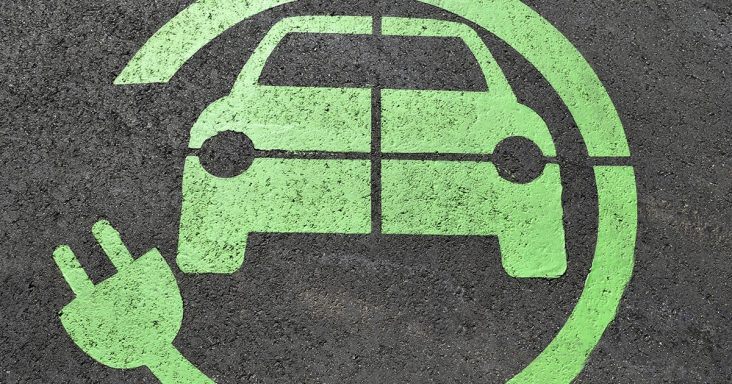Arkansas officials working to increase electric vehicle adoption
by October 15, 2021 1:00 pm 1,646 views

Arkansas is moving toward greater adoption of electric vehicles, and creating a charging infrastructure is a top priority of the governor, Secretary of Energy and Environment Becky Keogh said Oct. 14.
Keogh made her comments at Empower Arkansas, the Arkansas Advanced Energy Association’s Annual Meeting & Policy Conference at Heifer International. Referring to Gov. Asa Hutchinson, she said, “I don’t think I’ve been in a cabinet meeting for the last several months that that has not been a topic he brought up.”
DC fast chargers that can quickly charge an electric vehicle will be needed every 50 miles for commerce, Keogh said. These will be expensive, but the Legislature has given her department the authority to use federal funds for grants. Slower Level 2 chargers will be needed at workplaces and communities where people can charge overnight. Most people will charge at home, and a rebate is expected for homeowners, she said.
She said three charging stations are being installed this week at her department’s headquarters. The department hopes to discuss installing charging stations at state parks.
She said south Arkansas could be a leader in U.S. lithium production for battery storage. A pilot program has been operating about a year in partnership with Standard Lithium. According to a press release from that company dated Oct. 12, the company has recently completed a preliminary economic assessment for its South-West Arkansas Lithium Project that envisions producing 30,000 tons of battery-quality lithium hydroxide annually over 20 years by extracting brine.
Patti Springs, transportation and sustainability coordinator with the Arkansas Department of Energy and Environment, said there are seven DC fast chargers in Arkansas, not counting those operated by Tesla, and more than 100 Level 2 chargers. The state launched a four-year rebate program Feb. 1 and has since processed 46 applications for private companies, cities and cooperatives – some for dual-port chargers. Her agency has been working on a funding program for DC fast chargers that is not ready to launch.
Springs said state agencies can buy 7-9 alternative fuel vehicles through the state vehicle contract purchasing system.
“We all know that by, what is it, 2035, basically [internal combustion engine] vehicles are going to be a thing of the past. They basically will not be manufacturing those anymore,” she said.
Springs was part of a panel discussion that included Collin Riggin, the founding partner of EVolve Auto, a North Little Rock-based electric car dealership launched in 2019. Riggin said electric vehicles last about 300,000 miles and are cheaper to operate because they don’t require fuel, oil changes or other types of maintenance.
“Most [employers] are not aware that the only maintenance you need to do to a Tesla, for example, is maintain your tires like a normal vehicle and add windshield washer fluid,” he said. “There’s not much to it. So the savings are incredible, and these cars are lasting far longer than any traditional vehicles, so at some point it won’t be, ’Is it a good idea?’ as it would be considered a little bit crazy not to.”
Rock Region Metro, the public transit provider in central Arkansas, is using a $5 million grant from the Federal Transit Administration to fund an electric pilot program. CEO Charles Frazier said the agency is planning for 300-mile ranges and is also looking at en route chargers. The agency has already invested more than $15 million as part of a plan to replace all of its diesel buses by 2025 with those powered by compressed natural gas. More than half the fleet has already been converted.
Frazier emphasized the need for public-private and public-public partnerships to reduce redundant costs. The $5 million grant will help fund charging infrastructure that will serve the agency’s vehicles but also will be available to the public, he said.
